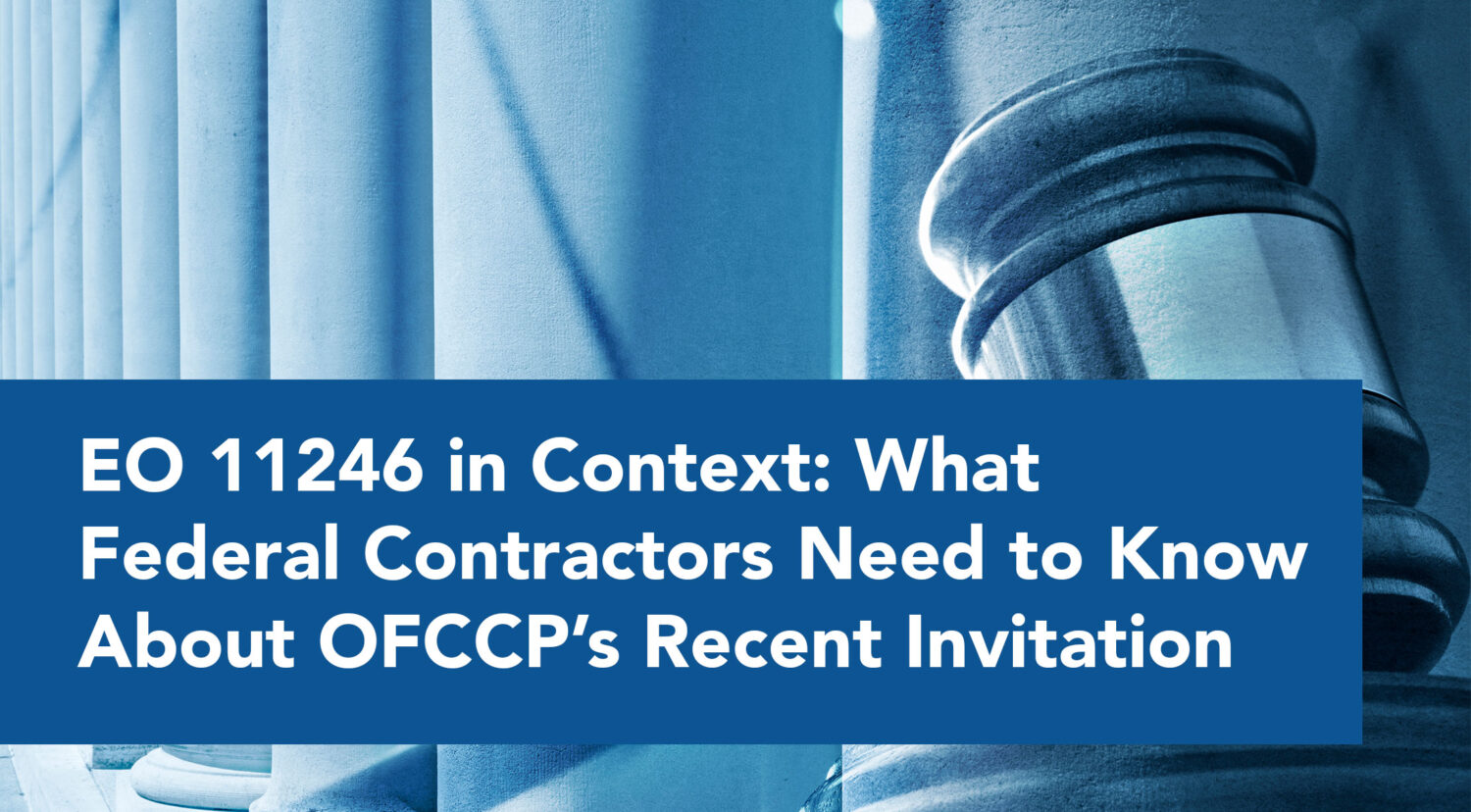

Last week, the U.S. Department of Labor’s Office of Federal Contract Compliance Programs (OFCCP) released three new directives aimed at improving accountability and efficiency in federal contracting. The directives are the latest step in ongoing efforts to streamline OFCCP’s compliance process.
The first directive calls for the creation of an opinion letter process to provide guidance to employers, employees, and the public about OFCCP’s application of regulations. It also sets in motion improvements to OFCCP’s Help Desk, which currently allows contractors to make inquiries by phone and email. To better serve contractors, the Help Desk will now feature a frequently asked questions section of sorts where contractors will be able to search questions previously asked by their peers.
The next directive would establish early resolution procedures to help resolve supply and service compliance evaluations as quickly as possible. The new procedures will allow for multi-establishment contractors to develop corporate-wide corrective actions to remedy violations involving things like recordkeeping, applicant tracking, audit and reporting systems, and self-audit. As a result of the new procedures, it will be easier for contractors with multiple establishments to promote corporate-wide compliance.
The third directive involves changes to OFCCP’s compliance review procedures. It rescinds Directive 2011-01, Active Case Enforcement (ACE) Procedures, which replaced abbreviated desk audits, Active Case Management (ACM), with full desk audits. Instead, it mandates that all compliance reviews be handled according to OFCCP’s Federal Contract Compliance Manual (FCCM) and other recent directives that shorten full desk audits and conciliate violations more efficiently. The goal of this directive is to increase the number of compliance evaluations OFCCP conducts by shortening desk audits involving personnel activity and compensation data submitted by contractors.
Essentially, these new directives promote a proactive approach to handling discrimination in federal contracting. They further OFCCP’s renewed commitment to more quickly addressing violations and preventing violations from occurring to begin with. These directives are also a continuation of OFCCP’s work to improve outreach so that contractors have a better understanding of the compliance evaluation process and can fully meet their responsibilities.





